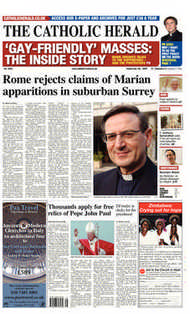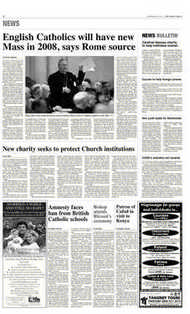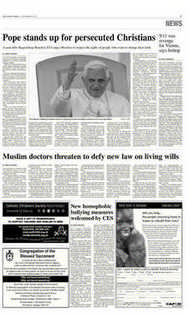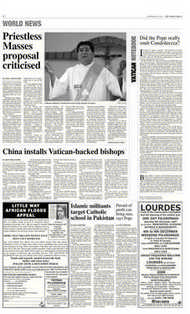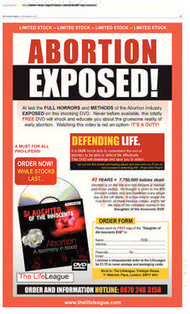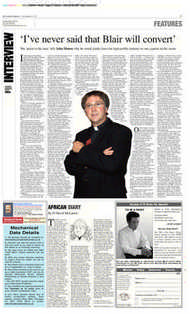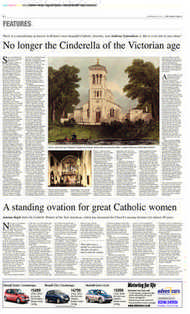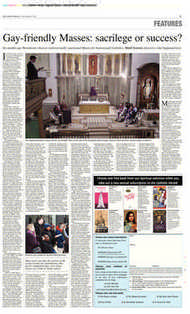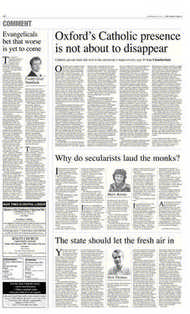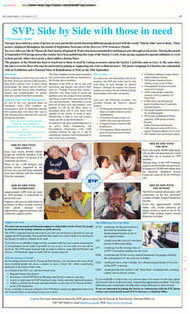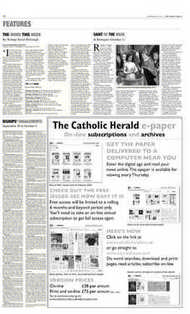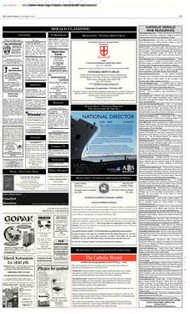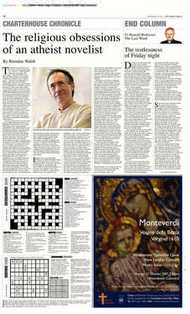Page 11, 28th September 2007
Page 11

Report an error
Noticed an error on this page?If you've noticed an error in this article please click here to report it.
Tags
Share
Related articles
Increase Liturgy Role For Women, Urges Council
The Loughborough Deanery: Working Together For The Diocese
Cardinal Heenan Says: `pray For Troubled Priests'
Differing Views On A National Pastoral Conference
PASTOR IUVENTUS
Repaying the Lord’s goodness
he State Opening of Parliament it’s not, but nevertheless there is a record turnout for the first deanery conference meeting after the summer recess.
When last we met in June, summer holidays were on the horizon, First Communion and RCIA and the school year were all coming to the end of a cycle which now is once more beginning.
Though we are only a small deanery with seven parishes, the addition of retired brethren and deacons mean that 17 of us sit down round the table.
Those more used to the world of political conferences might suspect that this large turnout might be due to the agenda item 8(e) Election of new Dean which comes just before “any other business.” They would be wrong, for there is nothing political about such an election.
Indeed, it could be argued that it is an election only in the archaic passive sense of the verb. It is not so much that we elect a dean as that someone is chosen to be recommended for nomination to the bishop. True, we vote, but there is no campaigning. Like the leader of the Conservative Party in the olden days, deans emerge rather than win votes. They are “elected” by a vote which confirms their effective preeminence as the most suitable candidate.
The word “dean”, I assume, comes from the Latin decanus – meaning one who had responsibility for 10 something or others. In management terms the dean is the area manager and parish priests the branch managers.
He has responsibility for convening the deanery conference meetings, general oversight of the area and is a source of counsel and support to the priests.
In age of fewer priests and parishes, the dean’s role can become more important than ever as he becomes responsi ble for coordinating pastoral resources in his area.
So the election proceeds with a certain amount of good humour. With one of the deacons acting as scrutator, the nominations are written on pieces of paper and put into an envelope. And so to lunch.
At the meeting we discussed the perennial issue of Mass attendance and schools applications.
I thought that there were a lot of visitors at Mass on Sunday, but I was forgetting that it is time to begin applications for school places and for preparation for first sacraments, so inevitably the attendance increases.
I found myself deeply depressed by this, to be honest, the way that the constituency changes. I would estimate that no more than 30 per cent of the children who made their First Communion back in May still come to Mass every week. This is not their fault, clearly, but I wonder what the parents think they are doing by bringing them every week while the catechetical preparation is on going and stopping once it’s over.
A woman came out of Mass with her children. She greeted me warmly and said how they hadn’t been to Mass for the past few weeks because of what she termed “family commitments”, but she was pleased she had been this week because she always felt much better, much more peaceful when they came.
I found it hard to know how to respond. She is clearly a good person and totally sincere, but in that situation I was at a loss how to suggest how, without sounding too negative, her attitude was wrong: more that of a consumer than a worshiper.
Her attitude is a common one nowadays, but coming to Sunday Mass only when other commitments permit, or even coming to Mass to make yourself feel better, is the religious equivalent of using someone in a relationship, albeit unknowingly.
Clearly the notion of obligation is no longer something which registers strongly for many people. For some, indeed, it would be seen as inferior to this lady’s voluntary commitment to her faith. Obligation is not a substitute for love, rather it is love which inclines us to accept obligation.
The words religion and obligation connote being bound to something. This binding is not the exercise of stronger power over the weaker, but rather the weaker binding to himself the protection and love of the stronger; it is the logic of the inequality between God and man. I obey because he is God and he shows me how to live in right relationship with one infinitely superior to myself. The greater the love, the more I should be prepared to be bound by its precepts.
The obligation to attend Mass on Sundays and holydays is an expression of a reciprocity between the limitless offer of God’s grace and my finite capacity to know how to respond adequately. It allows me to know I have done what is required for love.
Obligation arises in the heart; its movement is like the psalmist’s question and answer: “How can I repay the Lord for his goodness to me? The cup of salvation I will raise. I will call on the Lord’s name.”
blog comments powered by Disqus


